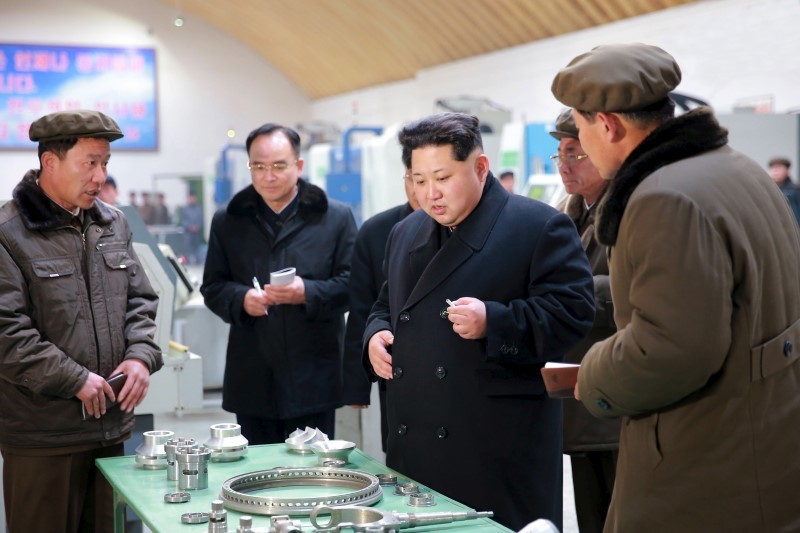
UNITED NATIONS (Reuters) – United Nations Secretary-General Ban Ki-moon has reacted to Iran’s recent ballistic missile tests by urging Tehran to act with moderation and restraint and to avoid increasing regional tensions, U.N. spokesman Stephane Dujarric said on Thursday.
“In the current political atmosphere in the Middle East region, and so soon after the positive news of the lifting of sanctions against Iran, the secretary-general calls … Iran to act with moderation, caution and the good sense not to increase tensions through hasty actions,” Dujarric told reporters.
A series of ballistic missile tests this week conducted by Iran’s Revolutionary Guard units drew international concern. The United States, France and other countries said that if confirmed, of launches nuclear-capable ballistic missiles would be a violation of a U.N. Security Council resolution.
Dujarric noted that it is up to the 15-nation council to examine issues related to resolution 2231, which calls upon Iran “not to undertake any activity related to ballistic missiles designed to be capable of delivering nuclear weapons, including launches using such ballistic missile technology.”
The United States has said Iran’s missile tests do not violate the terms of an historic nuclear deal between Tehran and six major powers, which resolution 2231, adopted in July 2015, endorsed. The U.N. missile restrictions and an arms embargo on Iran are not technically part of the nuclear agreement.
Council diplomats say they will first await confirmation from national intelligence agencies about whether the missiles Iran has fired were nuclear-capable. They also say that Russia and China, which opposed the continuation of restrictions on Iran’s missile program, would likely block council action.
Iran’s Foreign Ministry said on Wednesday that the tests were not in violation of the nuclear agreement, which led to lifting of sanctions in January.
Western diplomats say resolution 2231, which “calls upon” Iran to refrain from certain ballistic missile activity, offers no green light for nuclear-capable missile launches by Tehran and is therefore a clear ban.
However, they acknowledge that Russia, China and Iran likely interpret that language as an appeal to Iran to voluntarily refrain from missile activity. Tehran has also said that none of its missiles are designed to carry nuclear weapons.
While no new U.N. sanctions may be imminent, Western diplomats say that the United States and some of its allies could take additional punitive action in the form of unilateral national sanctions against Iran over the latest missile launches, something Washington has done previously.
When U.N. sanctions on Iran were lifted in January, the Security Council’s Iran sanctions committee was shut down. But council diplomats said they expect the former chair of that now-defunct committee, Spain, will take on the task of overseeing the monitoring of Tehran’s compliance with resolution 2231.
(Reporting by Louis Charbonneau, editing by Michelle Nichols and Alan Crosby)











